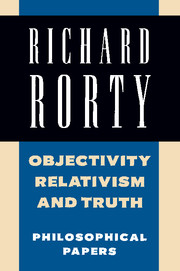Book contents
Representation, social practise, and truth
Published online by Cambridge University Press: 05 June 2012
Summary
Some years ago, Robert Brandom suggested that recent philosophy of language divides up into two schools. For the first, or representationalist, school (typified by Frege, Russell, Tarski and Carnap), Brandom says, “the essential feature of language is its capacity to represent the way things are.” Representationalists, he continues, “take truth to be the basic concept in terms of which a theory of meaning, and hence a theory of language, is to be developed.” The second school (typified by Dewey and Wittgenstein) starts off from a conception of language as a set of social practises. Members of this school start off from assertibility, and then squeeze the notion of truth in as best they can.
As Brandom says, both the early Heidegger and Sellars are members of the latter school. There is, I think, a useful comparison to be made between the way in which those two social-practise theorists handle the distinction between assertibility and truth. The Heidegger of Being and Time, as Brandom says in a later article, defends “the ontological primacy of the social” on the basis of “pragmatism concerning authority.” For the Heidegger of this period, truth as accuracy of representation, as mere correctness [Richtigkeit, adaequatio], is identified with warranted assertibility, treated as a matter of conformity to current practise. He takes the traditional pseudo-problems of the relation of language to beings, problems engendered by representationalism, to be solved by the discovery of the primacy of the social.
- Type
- Chapter
- Information
- Objectivity, Relativism, and TruthPhilosophical Papers, pp. 151 - 161Publisher: Cambridge University PressPrint publication year: 1990
- 3
- Cited by



